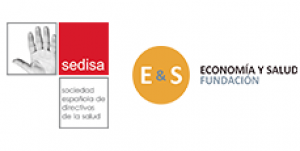University certificate
Scientific endorser

The world's largest faculty of nursing”
Description
Develop your management role as a nursing professional through this program"
The current socio-economic context, together with the other factors influencing people’s health, is making it all the more necessary to improve the managerial skills of those responsible for healthcare procedures. In the health structure, the nursing division plays a fundamental role in the custody and development of health processes, so the need for specialization in this area is evident.
The new challenges of the profession, such as research, the improvement of nursing care, the need to increase efficiency in the use of resources, assuming new leadership or gaining its position in the interdisciplinary team, are not simple challenges to address. The profession is undergoing a period of change, where moving forward is a major priority and, undoubtedly, there will difficulties along each step of the way. For this reason, the specialization of nursing professionals will be a determining factor in this evolution, and those who are going to perform their activity in positions of responsibility will have to have prepared for it or they may fall into inefficiency or ineffectiveness.
For this reason, TECH Global University has developed this Professional master’s degree in MBA in Nursing Management, thanks to which students will be able to delve into the intricacies of the profession. A unique opportunity to develop management and leadership skills for those in positions of responsibility in these departments. In order to achieve this, they will have access to a first-class syllabus and the most innovative teaching methodology in the current market, which will allow them to study the entire program online, from the comfort of their own home and at their own pace. Additionally, TECH has included in this syllabus an exclusive series of 10 complementary Masterclasses, designed by a renowned international expert, a prestigious specialist in Nursing and Healthcare Management.
Do you want to update your clinical practice in Nursing and Healthcare Management? With TECH you can access a set of 10 Masterclasses designed by a leading expert of international stature in these important fields"
This Professional master’s degree in MBA in Nursing Management contains the most complete and up-to-date scientific program on the market. The most important features include:
- Practical cases developed by experts in management of nursing procedures and other disciplines
- The graphic, schematic, and practical contents with which they are created provide scientific and practical information on the situations that regularly occur in the hospital setting
- Presentation of practical workshops on procedures and decision making
- Algorithm-based interactive learning system for decision-making in the situations that are presented to the student
- Action protocols, where you can find the latest trends in healthcare management
- Theoretical lessons, questions to the expert, debate forums on controversial topics, and individual reflection assignments
- Special emphasis is put on the scientific method and research methodology in health management
- Content that is accessible from any fixed or portable device with an Internet connection
You will be able to complete the Professional master’s degree 100% online, adapting it to your needs and making it easier for you to take it while you carry out your full-time healthcare activity”
The teaching staff includes professionals from the field of nursing, who bring their experience to this program, as well as renowned specialists from leading communities and prestigious universities.
The multimedia content, developed with the latest educational technology, will provide professionals with situated and contextual learning, i.e., a simulated environment that will provide an immersive specializing experience designed to prepare students for real-life situations.
This program is designed around Problem-Based Learning, whereby the professional must try to solve the different professional practice situations that arise during the course. For this purpose, professionals will be assisted by an innovative interactive video system created by renowned and experienced experts.
New scenarios in accident and MBA in Nursing Management push us to propose new specialization programs that meet the real needs of experienced professionals, so that they can incorporate new advances into their daily practice"
Syllabus
The syllabus of this Professional master’s degree in MBA in Nursing Management has been created based on the current specialization needs of professionals in this field. For this reason, the most comprehensive information has been selected to offer students first class specialization, from health systems and policies, to clinical, economic and human capital management. Thus, students will have a global vision of all that this work entails.
Study at your own pace, with the convenience offered by TECH's online modality"
Module 1. Health Systems and Policies. Planning and Control of Health Organizations
1.1. Health Systems
1.2. Healthcare Financing and Provision
1.3. Evolution and Other Aspects of Health Systems
1.4. Alternatives to the Traditional Management Models
1.5. The Process of Strategic Planning
1.6. Management by Values and Objectives
1.7. Organizational Theory Applied to Healthcare
1.8. Management and Direction
1.9. Management Control in the Healthcare Sector
Module 2. Clinical, Economic and People Management
2.1. Bases of Accounting Applied to Economic Health Management
2.2. Efficiency and Sustainability of Health Systems
2.3. Budget and Purchasing
2.4. Financing and Payment Models
2.5. Cost Calculation
2.6. Management Agreements
2.7. Health Professionals
2.8. Rights and Responsibilities Retributions
2.9. Working Day People Management
Module 3. The Nursing Department in the Health System. Clinical and Nursing Care Management
3.1. Nursing Department and Strategic Management
3.2. Information Systems in Nursing
3.3. Normalization of Nursing Language
3.4. Nursing Contribution to the Evaluation of Medical Products Nursing Managers of Material Resources
3.5. Information and Registering Systems in Nursing
3.6. Health Results
3.7. Patient Classification Systems
3.8. Tools for Care Management: Clinical and Procedures Management
3.9. Joining the Organization: Welcome Manual
3.10. Bioethics in Nursing Procedures and Value-Based Management
Module 4. Quality and Safety Management
4.1. Quality in Healthcare Organizations
4.2. Patient Security
4.3. Nosocomial Infections
4.4. Prevention
4.5. Information and Record Systems
4.6. Secondary and Tertiary Victims
4.7. Quality Accreditation in Healthcare
4.8. Organizations and Criteria Accreditation Models
4.9. Performance Evaluation Competency Management
4.10. Methods and Techniques
Module 5. Hospital Care Management
5.1. Emergency Services Management
5.2. UCI Management
5.3. Surgical Unit Management
5.4. Management of Hospitalization Units
5.5. Other Units or Special Services
5.6. Management of Central or Auxiliary Services
5.7. Radio Diagnostic Services Management
5.8. Laboratory Management
5.9. Pharmacy Hospital Management
5.10. Hospitality, Complementary and Voluntary Services Management
Module 6. Management in Care Settings
6.1. Health and Social Coordination
6.2. Primary Care Health
6.3. Primary Care Clinical Management
6.4. Chronic Patient Management Nurse Leadership in Facing the Challenge of Chronicity
6.5. Nursing Managers of Advanced Cases and Practice
6.6. Active Patients and Patient School
6.7. Outpatient Services Management
6.8. Out-of-Hospital Emergencies Management
6.9. Home Care: Models
6.10. Outpatient Care Services
Module 7. Decision Making and Communication in Nursing Leadership
7.1. Leadership and Team Leadership
7.2. People-Related Motivation: Stress and Emotion Management
7.3. Delegation
7.4. Executive Coaching
7.5. Decision Making and Time Management
7.6. The Decision Process Complex Care Management
7.7. Techniques for Decision-Making
7.8. Communication
7.9. Meetings
7.10. Conflict Management
Module 8. Nursing Management Services in Society Marketing, Communication and Health
8.1. Regulatory Aspects in the Management of Health Care Services
8.2. Promotion of Health and New Technologies. mHealth Nursing Care in the Technological Advances in Healthcare
8.3. Healthcare Marketing
8.4. Technological Changes that Improve Health Care Apps and Social Media in the Field of Health
8.5. Digital Skills in Healthcare Directors and Middle Management
8.6. Healthcare Market
8.7. Corporate Social Responsibility
8.8. Nurse Visibility: Social Networks and New Technology Future of Nursing
8.9. The Public Profile of the Health Care Manager and Managerial Staff
8.10. The Interview Process to Apply for a Managerial Position
Module 9. Teaching and Research
9.1. Critical Thinking in Nursing
9.2. Basic Principles of Research Methodology Applied in Health Sciences
9.3. Sources of Information for Research and Sourcing Strategies
9.4. Critical Reading of Articles
9.5. Epidemiology and Research Study Designs and Biases
9.6. Communication and Diffusion of Research Findings
9.7. Opportunities and Resources for Development of Studies and Research
9.8. Nursing Knowledge Management and Evidence-Based Nursing
9.9. Care Training Professional Development
9.10. Management and Innovation in Continual Professional Development in the Field of Teaching Innovation in Health Care and Caregiving
Module 10. Humanization in Health Management
10.1. Anthropology of Humanization: Health and Illness
10.2. Organizational and Transformational Culture in Healthcare Systems
10.3. Management of Organizations Based on Humanization
10.4. New Trends in Healthcare: the Voice of the Patient and Caregiver, the Active Patient and the Expert Patient
10.5. Ethical Considerations in the Healthcare Field
10.6. The Ethics of Nursing Care
10.7. Occupational Health and Prevention Services in the Healthcare Field
10.8. Professional Burn-Out Care-Associated Costs
10.9. Patient and Family Focused Care
10.10. A Current Approach to Treatment Support
Module 11. Leadership, Ethics and Social Responsibility in Companies
11.1. Globalization and Governance
11.1.1. Governance and Corporate Governance
11.1.2. The Fundamentals of Corporate Governance in Companies
11.1.3. The Role of the Board of Directors in the Corporate Governance Framework
11.2. Cross Cultural Management
11.2.1. Cross Cultural Management Concept
11.2.2. Contributions to Knowledge of National Cultures
11.2.3. Diversity Management
11.3. Management and Leadership Development
11.3.1. Concept of Management Development
11.3.2. Concept of Leadership
11.3.3. Leadership Theories
11.3.4. Leadership Styles
11.3.5. Intelligence in Leadership
11.3.6. The Challenges of Today's Leader
11.4. Business Ethics
11.4.1. Ethics and Morality
11.4.2. Business Ethics
11.4.3. Leadership and Ethics in Companies
11.5. Sustainability
11.5.1. Sustainability and Sustainable Development
11.5.2. The 2030 Agenda
11.5.3. Sustainable Companies
11.6. Corporate Social Responsibility
11.6.1. International Dimensions of Corporate Social Responsibility
11.6.2. Implementing Corporate Social Responsibility
11.6.3. The Impact and Measurement of Corporate Social Responsibility
11.7. Responsible Management Systems and Tools
11.7.1. CSR: Corporate Social Responsibility
11.7.2. Essential Aspects for Implementing a Responsible Management Strategy
11.7.3. Steps for the Implementation of a Corporate Social Responsibility Management System
11.7.4. CSR Tools and Standards
11.8. Multinationals and Human Rights
11.8.1. Globalization, Multinational Companies and Human Rights
11.8.2. Multinational Corporations and International Law
11.8.3. Legal Instruments for Multinationals in the Area of Human Rights
11.9. Legal Environment and Corporate Governance
11.9.1. International Rules on Importation and Exportation
11.9.2. Intellectual and Industrial Property
11.9.3. International Labor Law
Module 12. People and Talent Management
12.1. Strategic People Management
12.1.1. Strategic Management and Human Resources
12.1.2. Strategic People Management
12.2. Human Resources Management by Competencies
12.2.1. Analysis of the Potential
12.2.2. Remuneration Policy
12.2.3. Career/Succession Planning
12.3. Performance Evaluation and Performance Management
12.3.1. Performance Management
12.3.2. Performance Management: Objectives and Process
12.4. Innovation in Talent and People Management
12.4.1. Strategic Talent Management Models
12.4.2. Talent Identification, Training and Development
12.4.3. Loyalty and Retention
12.4.4. Proactivity and Innovation
12.5. Motivation
12.5.1. The Nature of Motivation
12.5.2. Expectations Theory
12.5.3. Needs Theory
12.5.4. Motivation and Financial Compensation
12.6. Developing High Performance Teams
12.6.1. High-Performance Teams: Self-Managed Teams
12.6.2. Methodologies for the Management of High Performance Self-Managed Teams
12.7. Change Management
12.7.1. Change Management
12.7.2. Type of Change Management Processes
12.7.3. Stages or Phases in the Change Management Process
12.8. Executive Communication
12.8.1. Internal and External Communication in the Corporate Environment
12.8.2. Communication Departments
12.8.3. The Person in Charge of Communicationof the Company The Profile of the Dircom
12.9. Productivity, Attraction, Retention and Activation of Talent
12.9.1. Productivity
12.9.2. Talent Attraction and Retention Levers
Module 13. Economic and Financial Management
13.1. Economic Environment
13.1.1. Macroeconomic Environment and the National Financial System
13.1.2. Financial Institutions
13.1.3. Financial Markets
13.1.4. Financial Assets
13.1.5. Other Financial Sector Entities
13.2. Executive Accounting
13.2.1. Basic Concepts
13.2.2. The Company's Assets
13.2.3. The Company's Liabilities
13.2.4. The Company's Net Worth
13.2.5. The Income Statement
13.3. Information Systems and Business Intelligence
13.3.1. Fundamentals and Classification
13.3.2. Cost Allocation Phases and Methods
13.3.3. Choice of Cost Center and Impact
13.4. Budget and Management Control
13.4.1. The Budget Model
13.4.2. The Capital Budget
13.4.3. The Operating Budget
13.4.5. Treasury Budget
13.4.6. Budget Monitoring
13.5. Financial Management
13.5.1. The Company's Financial Decisions
13.5.2. Financial Department
13.5.3. Cash Surpluses
13.5.4. Risks Associated with Financial Management
13.5.5. Financial Administration Risk Management
13.6. Financial Planning
13.6.1. Definition of Financial Planning
13.6.2. Actions to be Taken in Financial Planning
13.6.3. Creation and Establishment of the Business Strategy
13.6.4. The Cash Flow Table
13.6.5. The Working Capital Table
13.7. Corporate Financial Strategy
13.7.1. Corporate Strategy and Sources of Financing
13.7.2. Financial Products for Corporate Financing
13.8. Strategic Financing
13.8.1. Self-financing
13.8.2. Increase in Equity
13.8.3. Hybrid Resources
13.8.4. Financing Through Intermediaries
13.9. Financial Analysis and Planning
13.9.1. Analysis of the Balance Sheet
13.9.2. Analysis of the Income Statement
13.9.3. Profitability Analysis
13.10. Analyzing and Solving Cases/Problems
13.10.1. Financial Information on Industria de Diseño y Textil, S.A. (INDITEX)
Module 14. Commercial and Strategic Marketing Management
14.1. Commercial Management
14.1.1. Conceptual Framework of Commercial Management
14.1.2. Business Strategy and Planning
14.1.3. The Role of Sales Managers
14.2. Marketing
14.2.1. The Concept of Marketing
14.2.2. The Basic Elements of Marketing
14.2.3. Marketing Activities in Companies
14.3. Strategic Marketing Management
14.3.1. The Concept of Strategic Marketing
14.3.2. Concept of Strategic Marketing Planning
14.3.3. Stages in the Process of Strategic Marketing Planning
14.4. Digital Marketing and e-Commerce
14.4.1. Digital Marketing and E-commerce Objectives
14.4.2. Digital Marketing and Media Used
14.4.3. E-Commerce General Context
14.4.4. Categories of E-commerce
14.4.5. Advantages and Disadvantages of E-commerce Versus Traditional Commerce
14.5. Digital Marketing to Reinforce a Brand
14.5.1. Online Strategies to Improve Your Brand's Reputation
14.5.2. Branded Content and Storytelling
14.6. Digital Marketing to Attract and Retain Customers
14.6.1. Loyalty and Engagement Strategies through the Internet
14.6.2. Visitor Relationship Management
14.6.3. Hypersegmentation
14.7. Managing Digital Campaigns
14.7.1. What is a Digital Advertising Campaign?
14.7.2. Steps to Launch an Online Marketing Campaign
14.7.3. Mistakes in Digital Advertising Campaigns
14.8. Sales Strategy
14.8.1. Sales Strategy
14.8.2. Sales Methods
14.9. Corporate Communication
14.9.1. Concept
14.9.2. The Importance of Communication in the Organization
14.9.3. Type of Communication in the Organization
14.9.4. Functions of Communication in the Organization
14.9.5. Elements of Communication
14.9.6. Communication Problems
14.9.7. Communication Scenarios
14.10. Digital Communication and Reputation
14.10.1. Online Reputation
14.10.2. How to Measure Digital Reputation?
14.10.3. Online Reputation Tools
14.10.4. Online Reputation Report
14.10.5. Online Branding
Access a complete syllabus and improve your skills in MBA in Nursing Management"
Professional Master's Degree MBA in Nursing Management
On March 11, 2020, the entire world had to summon its fortitude and sense of cooperation to confront one of the most catastrophic threats in recent years: the coronavirus pandemic. The magnitude of the contingency meant training new health personnel. With the increase in staff, professionals with skills in managing and coordinating human and material resources were also required. Given that the current and future crises related to pandemics continue to be a challenge where leadership is essential, TECH Global University has developed the Professional Master's Degree in Nursing Management, a program based on the latest distance learning technology to ensure students, not only solid skills that allow them to perform better, but also to complement their career in a simple, accessible and comfortable way. In TECH we care about providing the best academic experience with methodological innovations that precipitate favorable changes in business, social and intellectual fields. Dare to know the other side of progress.
Learn about Nursing Management
In total there are ten modules that bring together the most generalized aspects of the managerial function in the healthcare position, as well as the most specific ones. Topics such as: health systems and policies, clinical and nursing care management, hospital care management, marketing and communication through new digital tools, etc. are included. Each of the contents in this program has been supervised and endorsed by a multidisciplinary group of experts that encompass the most specialized in the administrative, business and, of course, medical fields. Part of this same group will act as teachers during the online tour of each of the topics. The role of Nursing is becoming more and more important in the labor sector as time goes by. Proof of this is the study carried out by the WHO entitled: Situation of nursing in the world 2020: investing in education, employment and leadership, where the indispensable value of the position is redefined. With our Professional Master's Degree you will have the advantage of working as a director in this area, which will give you even greater professional status.











